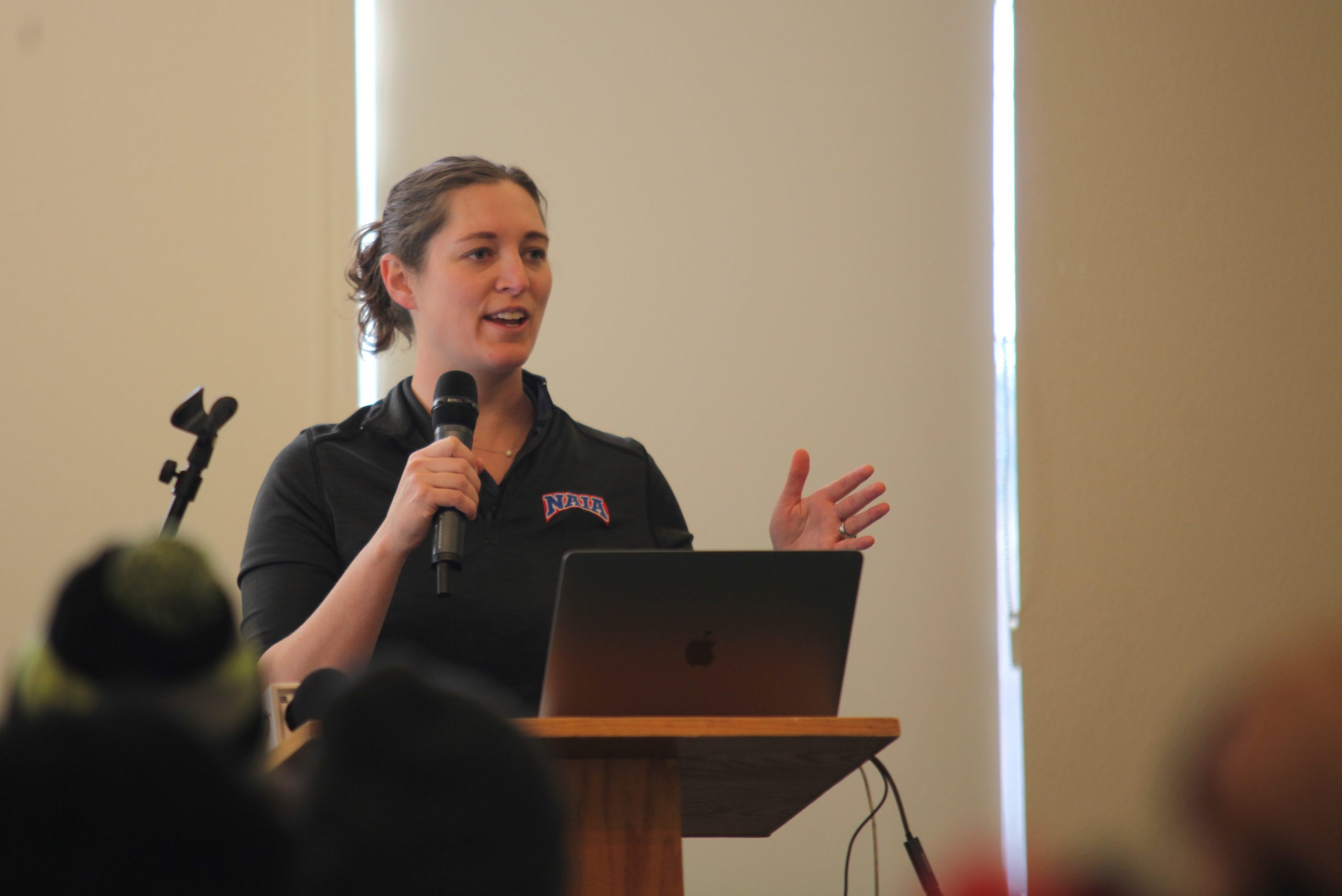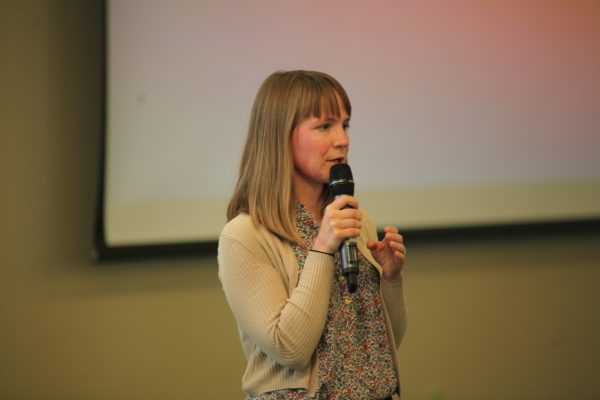On Monday, over 250 of Goshen College’s student athletes gathered for a conversation about mental health. According to nationwide trends reported by the National Institute of Health (NIH), it’s likely that 50 or more of these student athletes could be struggling with mental illness.
The seminar was put on by GC’s athletic department to shine a spotlight on the issue of athlete mental health.In her presentation, Erica Albertin, Goshen’s athletic director, shared more statistics from the NIH: An average of one in five people across the United States report difficulties with mental illness, and those aged 18-25 have the highest mental health incident rate, yet the lowest treatment numbers. On average, one in four college students has a diagnosable mental illness, and despite this, 40% of those afflicted do not seek help.
Albertin opened up the seminar by saying, “the whole point of today is to start a dialogue. It’s not exactly the most comfortable topic to talk about, but it’s something that I really want to discuss right now.”
Albertin showed a brief TED Talk video that highlighted the story of a University of Southern California women’s volleyball player struggling with academic anxiety.
Student athletes were asked to discuss whether or not the TED Talk reminded them of anyone on campus who was struggling, and if so, they were asked how the issue was addressed.
Liz Andes, director of health and wellness, shared about what resources are available to athletes and GC students.
“Societally, we’re coming to terms with the fact that having a mental health condition is not a rarity anymore,” Andes said.“We know from psycho-social research that these things are treatable.”
The main resource that Andes wished to highlight were the eight counseling sessions offered to GC students per semester, free of charge. “Our offices are in Wyse Hall, and the door is always open,” she said.
GC counseling services include individual counseling, support groups and workshops.
Counselors can provide referrals and diagnoses, as well as assist in making an appointment at Goshen Family Physicians.
Andes then opened the room back up for discussion. Laid out at each table was a sheet of paper listing several hypothetical scenarios regarding mental health. One example was, “Your teammate is sleeping until 1:00 p.m., missing classes, and seems to not be acting like themselves. You’re thinking they may be having suicidal thoughts. What would you do?” Alongside these questions, students were asked to grade how they would rate their mental health status on a scale of one to ten.
Responses to the seminar and the ensuing conversations from a student-athlete perspective have been largely positive.
Kyra Yoder, a freshman on the women’s soccer team, enjoyed the talk but also admitted that some of the information wasn’t necessarily new. “I thought that it was informative, but I had heard all of it before,” she said.
Yoder, who deals with anxiety, said that she would feel comfortable discussing her mental health with GC mental health workers and that she has worked with counselors in the past. Yoder also indicated that everyone at her table was honest about their mental health, and she was happy to see such vulnerability from fellow student-athletes.
Albertin and Andes both said they anticipate having more seminars in the future with a wide array of topics, ranging from Title IX to academic support for student-athletes.
“It’s fun to have students back together again. We used to have Maple Leaf Seminar nights on Sundays, so the idea is to start gradually bringing those back in,” said Albertin. “Hopefully in the future, we can have a different topic every month; we started with athlete mental health because it’s just such a big topic.”
If you or someone you know is having a mental health emergency after office hours, contact the on-call Student Life Administrator at (574) 535-OCRD (6273).



